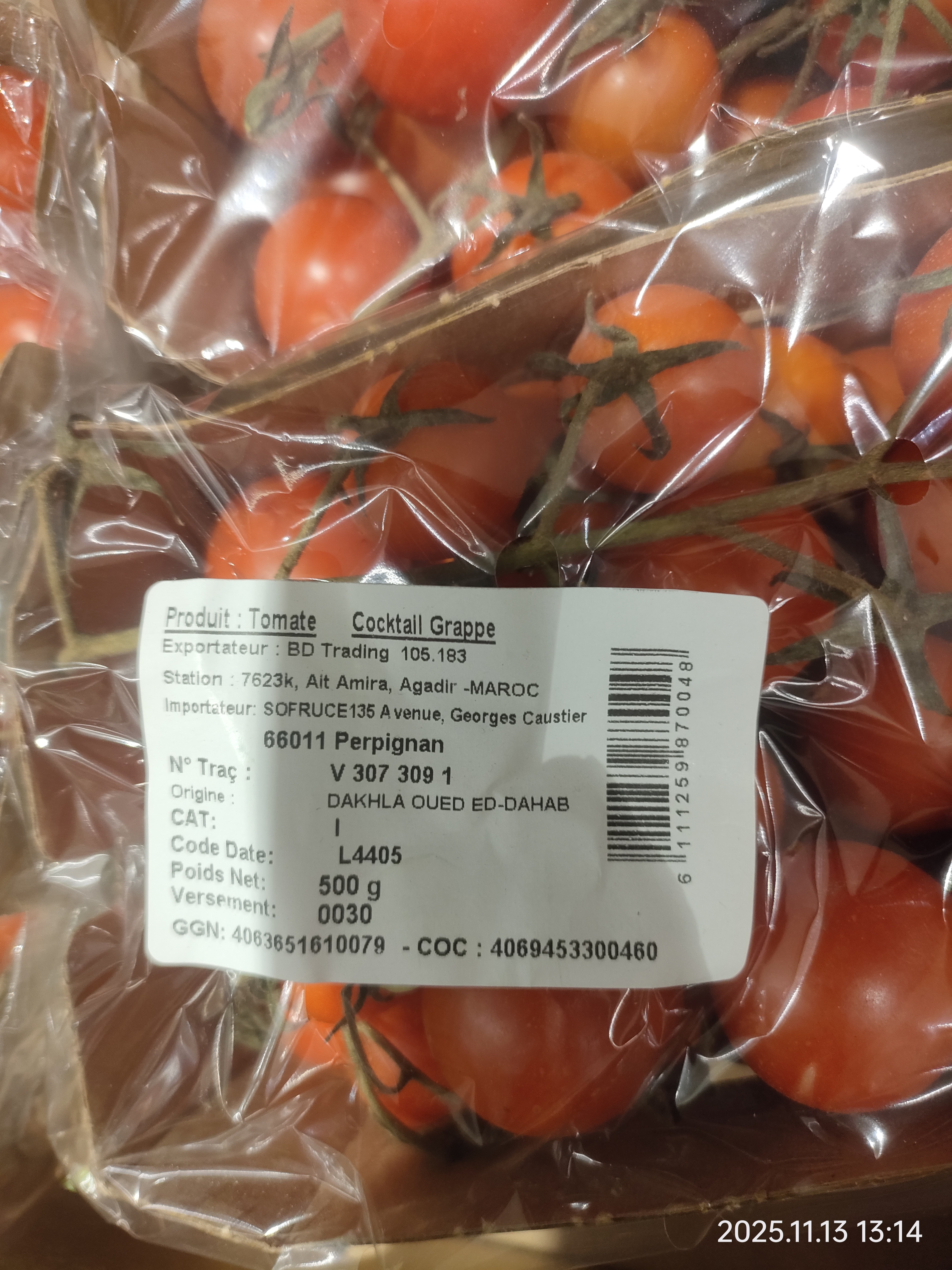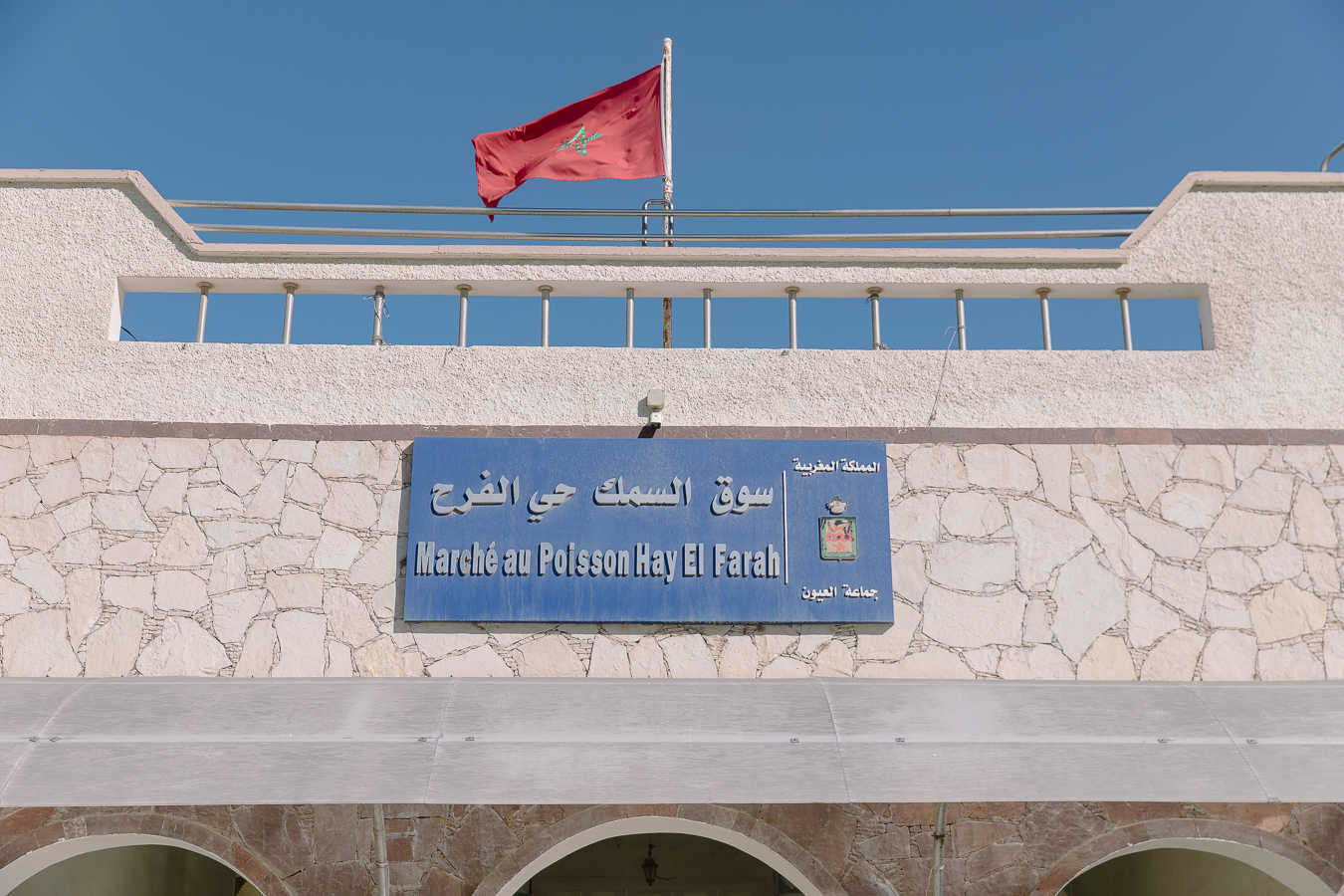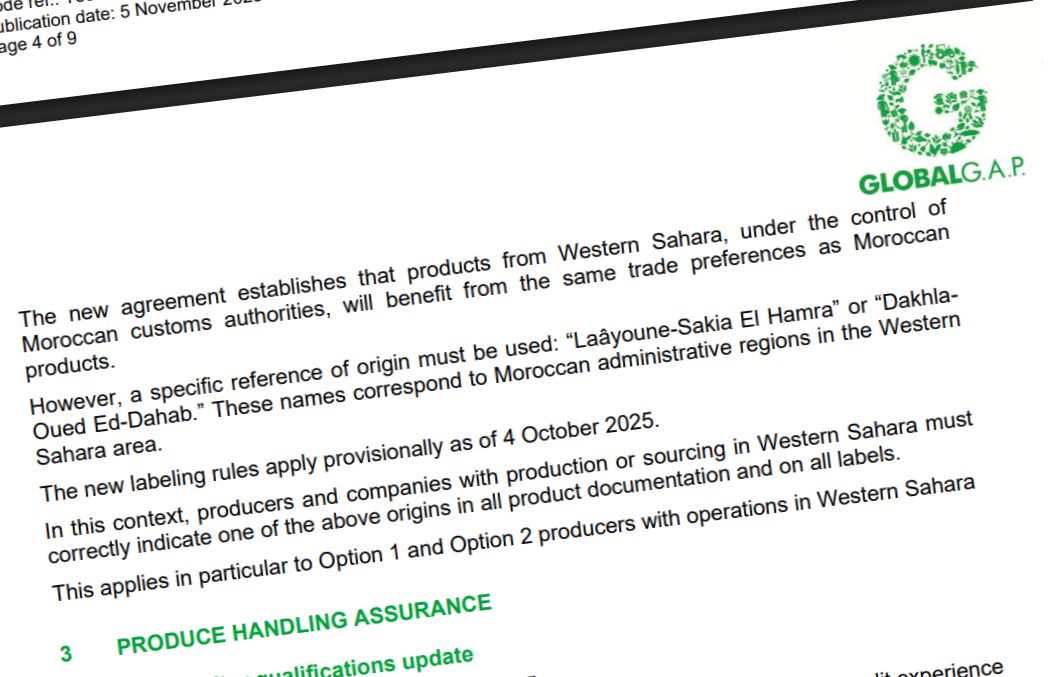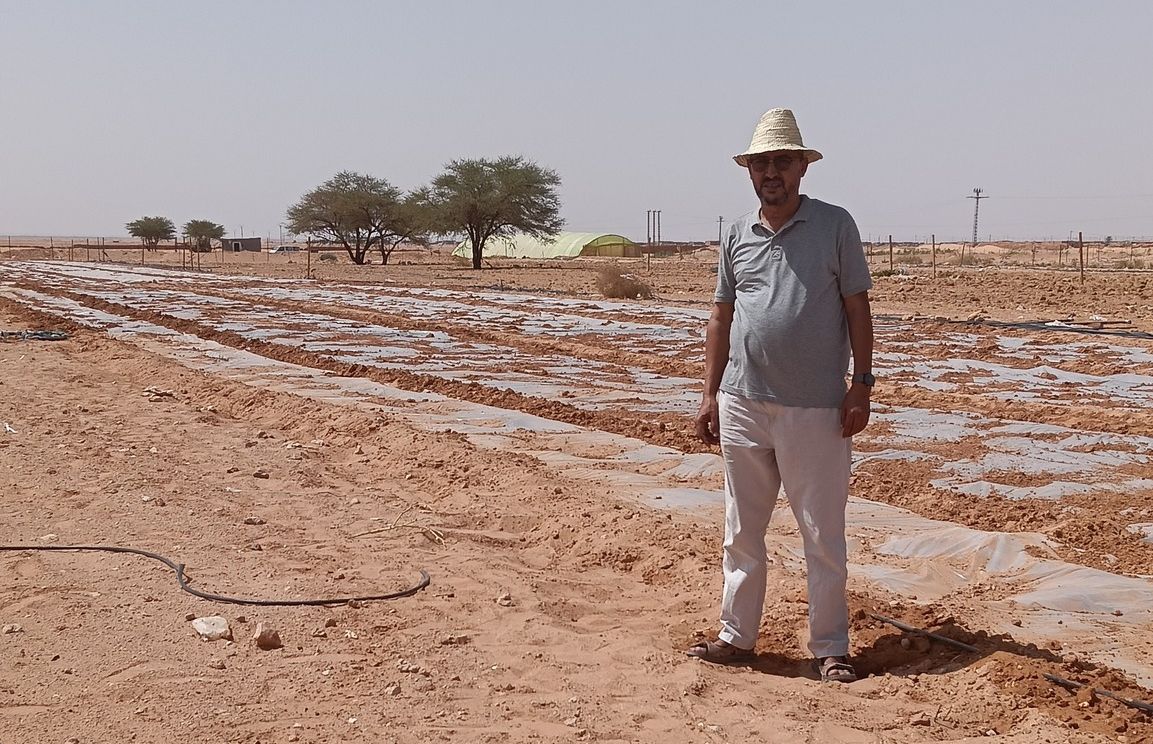
A Saharawi refugee farmer expresses shock about the German certification scheme qualifying Moroccan agriculture in his illegally occupied homeland as sustainable.
“Moroccan farms in the occupied territory receive these GLOBALG.A.P. sustainability labels as if nothing ever happened – no war, no exile, no UN resolutions. By issuing certificates in this context, GLOBALG.A.P. transforms a legacy of aggression on our land and community into an image of order and sustainability. It’s colonialism rebranded”, Taleb commented to Western Sahara Resource Watch (WSRW).
WSRW last week revealed how the German certification scheme GLOBALG.A.P. labels Moroccan farms on occupied land as “responsible”. Not only that: the issued certificates locate all the farms on the occupied territory in the wrong country: Morocco.
WSRW has interviewed a farmer from Western Sahara who will almost certainly never obtain such certification: refugee and agronomist Taleb Brahim. Since his homeland remains under foreign occupation, Taleb has devoted his adult life to finding ways to grow food in the harsh desert environment where the people of Western Sahara have been forced to live since Morocco’s invasion in the late 1970s.
“The greatest challenge will always be the access to water, but the soil here is also remarkably poor”, Taleb explained. In his garden he cultivates 24 different vegetable species, ranging from tomatoes and sweet peppers, to eggplants, carrots, beets, and parsley.
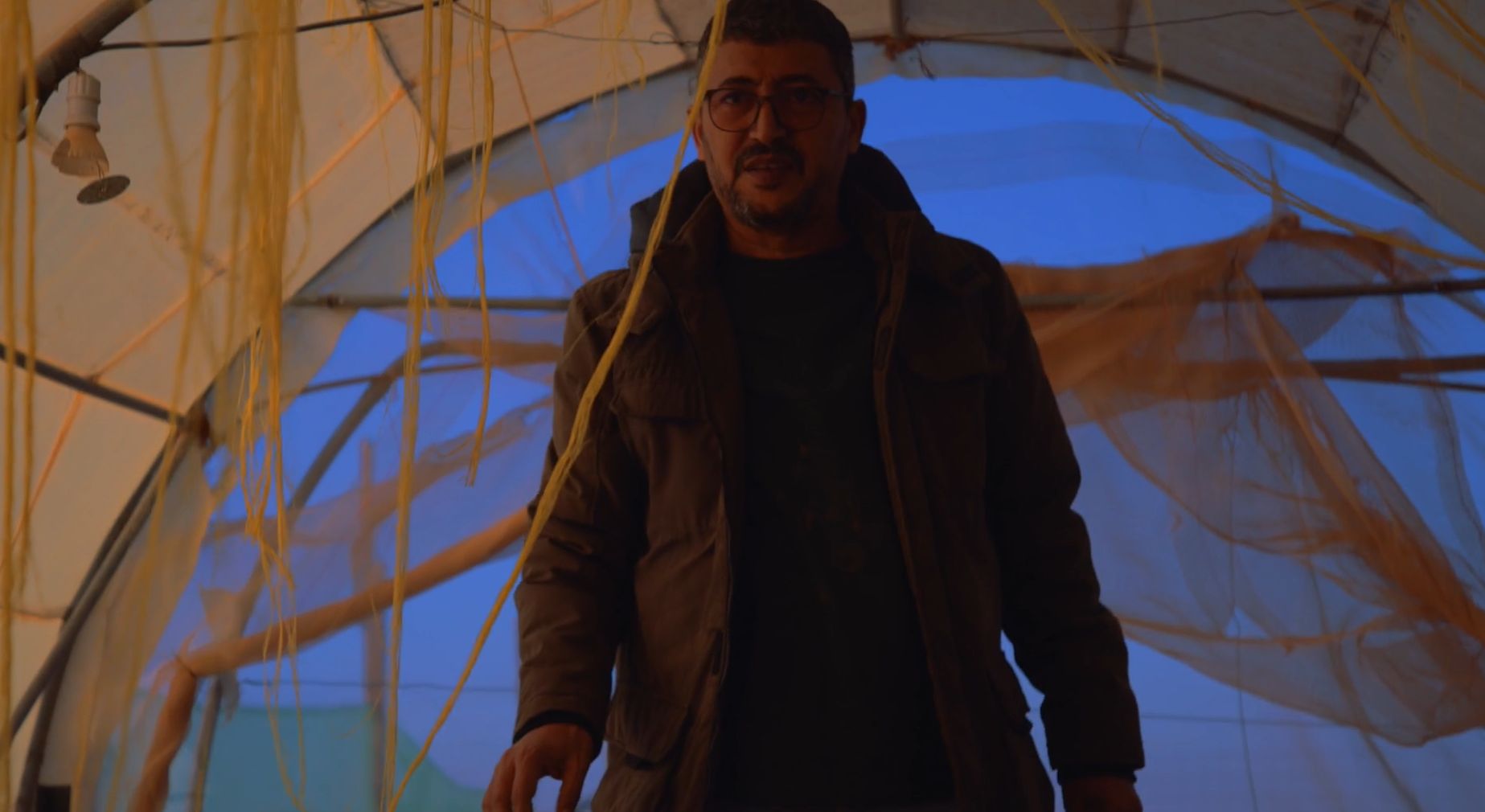
Taleb is pioneering new techniques to grow vegetables in the barren, moon-like landscape of the Algerian desert. His dream, being an engineer of agriculture and a permaculture expert, is to create a system that enables refugee families to access fresh, home-grown food. His experimental farm has already attracted international attention.
Now 55, Taleb still remembers the day he was forced to leave the city of El Aaiún as a child. “I ended up in this Algerian desert, compelled to live in a place we never chose,” he stated. He says that he feels deeply frustrated when reading that GLOBALG.A.P describes Moroccan farming in occupied Western Sahara as responsible.
“GLOBALG.A.P adds insult to our injury”, he said.
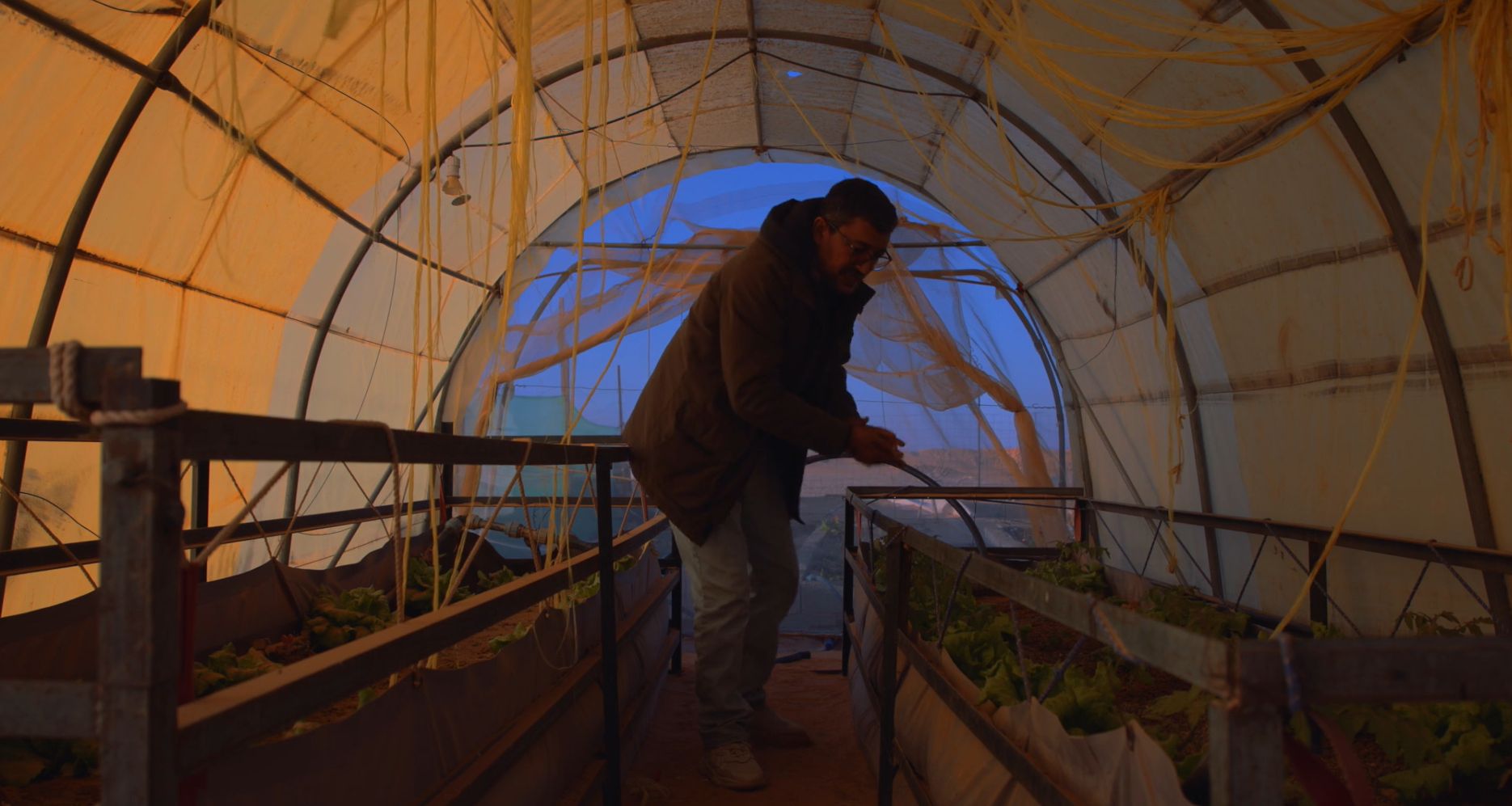
Like Taleb, around half of all Saharawis live as refugees just across the border in Algeria. Enduring summer temperatures that often exceed 50 degrees Celsius and coping with a severe shortage of water and food aid, they face an extremely harsh humanitarian situation. In his latest report to the UN Security Council, the UN Secretary-General cited nutrition studies showing stunting rates above 30 percent and acute malnutrition approaching 13 percent.
His compatriots who remain in the territory under Moroccan occupation are living in one of the least politically free environments in the world.
“The refugee families around me are the true coastal community of Western Sahara. We are the rightful owners of the land. The very ground on which the Moroccan farms now stand was seized during a military invasion that displaced tens of thousands of us. That reality cannot be erased by checklists or management protocols checked by a certification company. Real responsibility means more than meeting the legal expectations of an occupying power. Endorsing Moroccan agricultural farms without addressing the violent roots of their presence legitimises the theft of our land. With its approval, GLOBALG.A.P. is giving the brutal Moroccan take-over of our land a stamp of legitimacy”, Taleb stated.
“Reading this brings back all the losses that we have endured. I remember the painful memories of my mother and my father. When we fled, we were forced to leave behind my older brother - I have seen him only once since”, he said.
He described the practice of granting GLOBALG.A.P. certificates to Moroccan companies operating on his community’s land as “shocking”.
“The certificates must be withdrawn. For as long as the territory remains under Moroccan foreign occupation, no such certificates should be issued”, he stated.
“Imagine a scenario”, Taleb said, ”in which a thief breaks into your house and denies you of your rights. Is there any conceivable way that the thief could then in a “responsible” manner plunder your property, settle in your home, ignore your existence, and profit from your exile? It makes no sense to call farming on occupied territory ‘responsible’ just because the farms follow the occupier’s laws or benefit the occupiers' population. How can one certify ‘responsible farming’ on land seized at gunpoint?”, Taleb commented.
“Does GLOBALG.A.P. in any other international context allow certifications in one territory under the laws of another?”, he asked. “Would it issue certificates to Russian fruit farmers in Crimea? Or to the olive farms of Israeli settlers in the West Bank? The absence of enforcement of Ukrainian or Palestinian law in occupied territories, is not an excuse to allow for recognition of Russian or Israeli law beyond their international borders”, Taleb said.
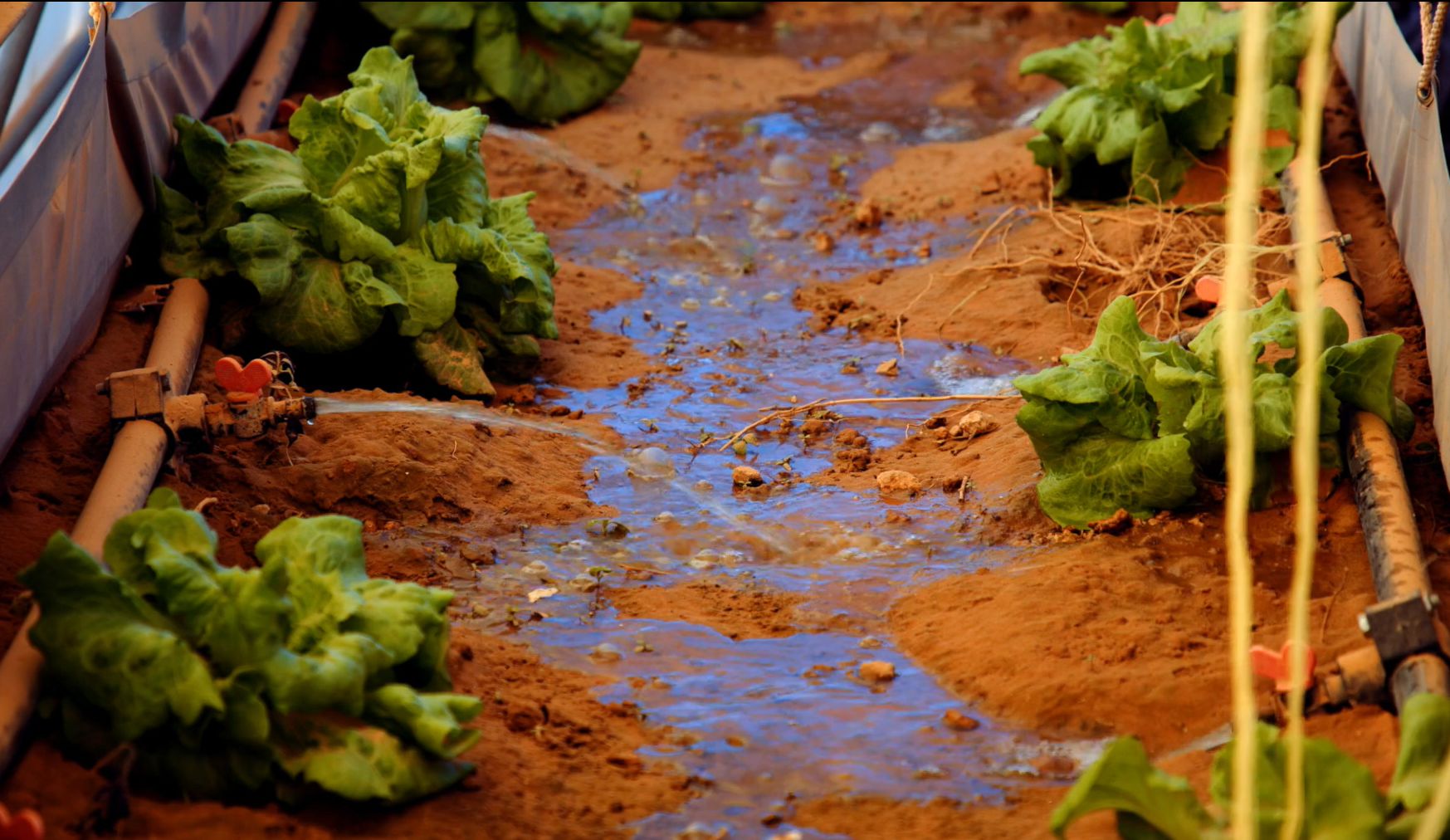
GLOBALG.A.P. has claimed that it applies the same standards in Western Sahara as in every other country in the world. “Well, that is the problem here, isn’t it?”, Taleb said. He emphasized that Western Sahara is not just another country. It is a distinct territory, with internationally recognised borders, with a people with sovereign rights - rights that have been denied by an occupying power. As a result, Saharawis today cannot enforce their own laws under occupation.
“How would one treat legal compliance in an occupied land in the same manner as compliance in an independent country? Farms in Western Sahara receive GLOBALG.A.P. certificates as if they were operating on undisputed Moroccan territory. Yet we, the people of Western Sahara, were never asked - and never gave - our consent. Certification without the consent of the land’s people is not validation: it instead evokes the feel of old-fashion colonialism”, he said.
“The least that GLOBALG.A.P can do - the absolute minimum - is to provide a credible breakdown of who these so-called “farming communities” actually consist of. Has any effort been made, at any stage, to determine whether this alleged ‘farmer community’ is composed solely of illegal settlers brought into the territory in violation of the Geneva Conventions, or if it includes people from Western Sahara?”, he said.
WSRW cited a statement issued by GLOBALG.A.P in April 2025, which referenced some of the conclusions of the EU Court of Justice.
“It is commendable that GLOBALG.A.P. has issued such a statement to its certifying bodies”, he stated. “But then what? It appears GLOBALG.A.P. is merely shifting responsibility onto the certifying bodies and the farms themselves - entities that are all profiting from the occupation. It seems GLOBALG.A.P. has no issue with the fact that the conclusions of the rulings are ignored. GLOBALG.A.P should demonstrate that the content of the CJEU rulings truly matters - meaning that they would not accept licences issued by Morocco over Western Sahara and that Saharawi consent is a prerequisite”, he said.
He also noted that GLOBALG.A.P is seemingly not adhering to the principles of the CJEU court ruling, having geographically placed all the certified farms in the wrong country, effectively suggesting that they are located in Morocco.
“GLOBALG.A.P. argues that, since there is no other legal regime to apply here, it must use Moroccan law for compliance assessments. Well, no! The proper alternative for GLOBALG.A.P is not to grant certificates at all, because Moroccan laws are irrelevant”, he stated.
“Any farm seeking certification from GLOBALG.A.P. internationally should ask itself this question. If farming on occupied land, in compliance with the laws of an occupying power, can pass, then what is the GLOBALG.A.P. certificate really worth? Imagine it is your own family’s land that has been taken over by a foreign power and then deemed ‘responsibly run’ by GLOBALG.A.P. afterwards. Imagine the anger you would feel”, he told.
WSRW sent this article to GLOBALG.A.P. for comment on the 3 September 2025. Earlier comments from GLOBALG.A.P. to WSRW have been integrated into the article published by WSRW on 29 August.
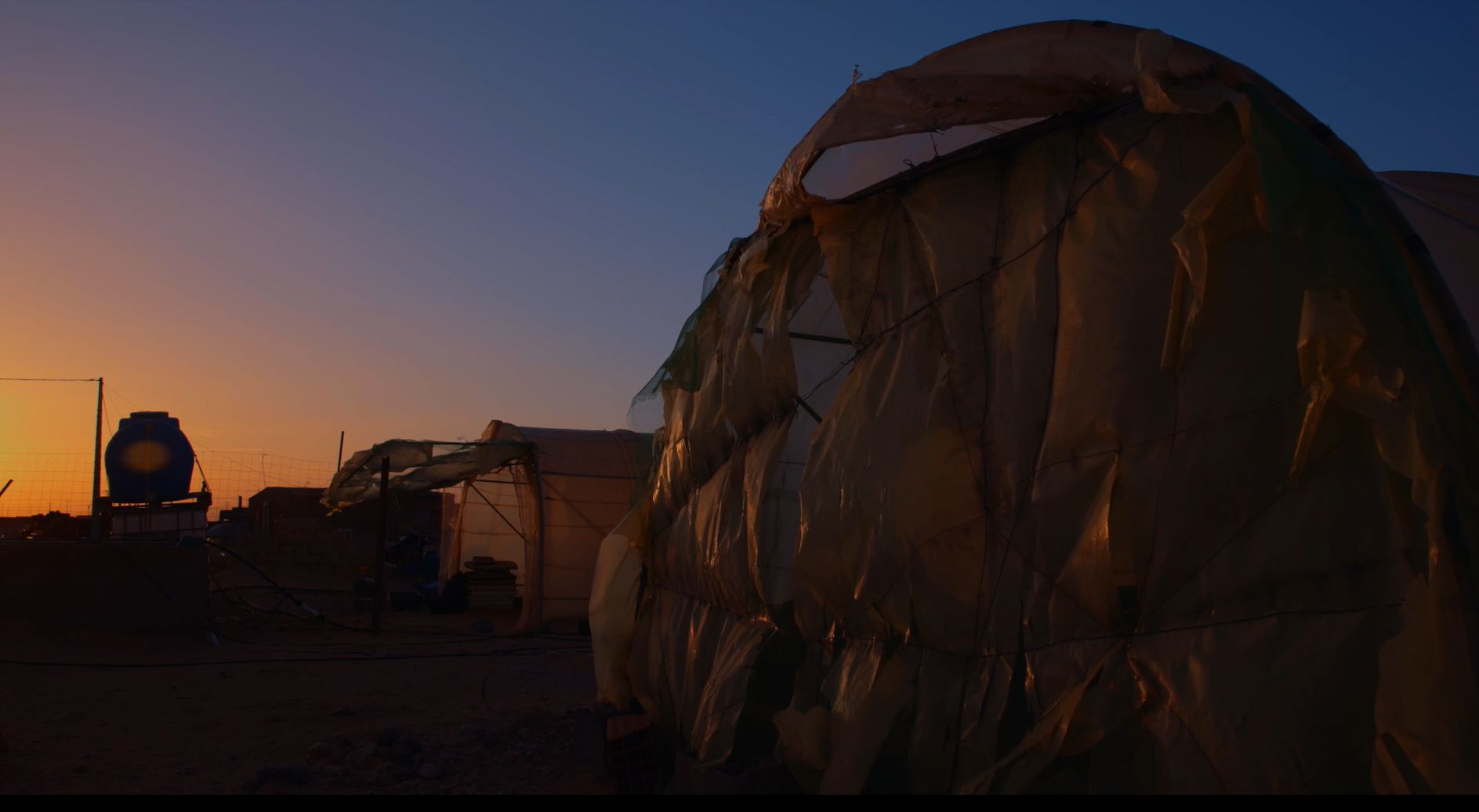
Since you're here....
WSRW’s work is being read and used more than ever. We work totally independently and to a large extent voluntarily. Our work takes time, dedication and diligence. But we do it because we believe it matters – and we hope you do too. We look for more monthly donors to support our work. If you'd like to contribute to our work – 3€, 5€, 8€ monthly… what you can spare – the future of WSRW would be much more secure. You can set up a monthly donation to WSRW quickly here.
EU’s labelling chaos already hitting supermarkets
A packet of cherry tomatoes sold this week in a French supermarket illustrates the confusion triggered by the European Commission’s rushed attempt to adapt EU consumer and trade rules to Morocco’s claims over occupied Western Sahara.
German trade fair should stop promoting Azura, groups say
German and Irish law organisations demand that Messe Berlin ceases to accept the controversial French tomato producer Azura.
GMP+ does not check if “sustainable” fish is legally caught
The world’s largest certification scheme for “safe and sustainable animal feed” does not check whether its certified fish feed companies source from illegal fisheries in occupied Western Sahara, where catches violate the Saharawi people’s right to self-determination.
GLOBALG.A.P. misleads EU retailers
The certification scheme that claims to champion legal compliance has circulated misleading information about EU labelling rules for products originating from occupied Western Sahara.
